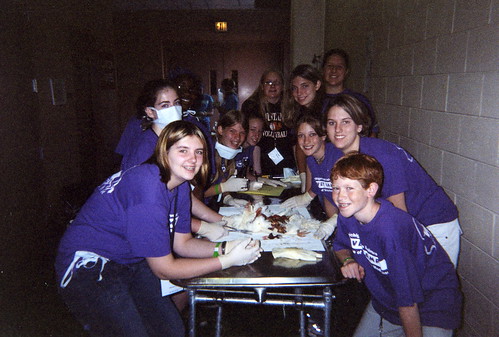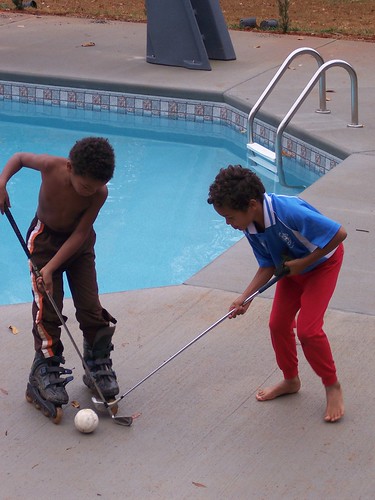I’ve been thinking about the whole idea of “auditory processing disorder” and/or “central auditory processing disorder” and how it relates to the right-brained learner. It appears that at least half the people I meet with right-brained learners think their child also has an auditory processing issue. So, as always, I’ve been filtering that thought through all the good information I share about the perspective shift on right-brained learning.
Mass institutions of learning generally teach in a left-brained fashion using a left-brained scope and sequence. The right brained learner has their own preferred scope and sequence, but it is not well known what that looks like. In fact, sometimes I think people are completely unaware that right-brained learners would naturaly have their own scope and sequence. Thus, it is one of my missions in life to share what that scope and sequence looks like, so it can be valued, let alone even recognized.
That said, some people choose to categorize a left-brained learner as “auditory-sequential” and a right-brained learner as “visual-spatial”, based on those attributes being prevalent in the respective learning styles. I don’t like that differentiation because it assumes right-brained people cannot be auditory learners or left-brained people can’t be visual learners. I think these are input modalities: some do well with auditory input, and others do well with visual input. I have six right-brained children and 1 right-brained husband. Four of them do well with auditory input (Weston, Eric, Alex, and Joseph). Three of them do quite poorly (Eli, Adam, and William). It seems they either do very, very well, or very, very poorly as it pertains to auditory input.
So, does that mean my children who do poorly with auditory input mean they have “auditory processing disorder”? It is true that they can barely process any auditory information effectively . . . or do they? I started looking closely, especially as I noticed a few things with myself. I am a strong left-brained learner. My daughter is more whole-brained, but learns in a left-brained manner, and mainly uses her visual skills for creating her fantasy novels. I have noticed lately, when my builder right-brained son, Eli (who doesn’t prefer the auditory input modality), has read things aloud to me from his computer, wanting to ask me a question, I cannot for the life of me process that auditory information without having to get up and go look at the words. My daughter has mentioned that she cannot concentrate on talks at church without doodling or taking notes (a common way for a right-brained learner to attune to left-brained or non-creative tasks).
So, I started thinking about how schools are set up. They are lecture based with note taking. This would go along the lines of how a left-brained person could process auditory information effectively. If they can write or see words (many times, notes were put on the board or on overheads or in outlines as the lecture was given) as they receive the auditory input, they are able to effectively and efficiently process that information. Because a right-brained person’s natural gift is not in words, many times those who do not prefer auditory input cannnot take notes and listen at the same time. However, Eli, who also is a natural at math, he can easily follow a lecture in his math class because the instructor inevitably is working out math problems as she explains. Thus, a visual that makes sense to my son is hooked to the auditory in order that it makes sense to him and can process it effectively. If Eli goes to a class at church where the teacher brings in picture visuals and hands-on activities, he processes the auditory information fine. If they do not, he struggles to pay attention and process the auditory input.
In our instructional world, we tend to use three of our five senses extensively: auditory, visual, and kinesthetic (touch). Smell and taste certainly come into play in such professions as cooking and general environmental assessments. Therefore, I challenge the idea that there are “glitches” in some right-brained learners who do not prefer to process input auditorially. Eli prefers to process visually and kinesthetically. That is 2 of the 3. He can do that third one when paired with one of the other two. I realize I may be similar. I need words involved in order to process auditory information, but because our society is set up to favor the left-brained processing structure, I do not need to figure out creative ways to accomplish the ability to process auditory information.Others buy levitra online cute-n-tiny.com believe that acid reflux is related to aging.
Eli is working out creative ways to accomplish the need to process information auditorially while in college by finding other sources to accomplish the same thing utilizing another of his input modalities. Taking on-line classes is a great option for him in lecture based classes. Because auditory input and words go hand in hand, he can take his time reading and processing the information at a pace that works for him. Yes, he has the option of getting a disability plan in order to tape record his lecture classes, but why? Eli subconsciously resents the idea that he needs to have a “disability plan” when he feels he is quite capable of learning the information if it is presented in a way that works for him. So, isn’t the learning environment “disabled”? It works for certain people, but not for others; yet, if it were structured differently, bringing in all the three input modalities, I think there would be less problems involved with most people. Eli received a high A for his online class for Psychology quite easily. And he really enjoyed the material and talked about what he was learning all the time.
The last thought pertains to processing auditory input from a conversation or if a friend or such is explaining something to you. Then, there is often no visual or kinesthetic hook to the auditory. I asked Eli how he processes our conversations. We have had discussions about the idea that looking at someone tells them you are paying attention. A young person, who attended public school worked for me this summer shadowing my son, William, at a day camp. It was apparent the first time I gave this young man instructions that he had “ADD” as he would not look at me when I spoke, and would not remember half of what I said to him. I asked Eli if it would be easier to not look at me when I spoke in order to process the auditory input more easily. He said it wouldn’t because if he looked off, he might become visually distracted by something and that is when his ears would shut down. I noticed that exact thing happening to this young man who worked for me. I told the young man he needed to come up with some strategies to help him, but he has no tools to pull from, and he has just graduated high school with high grades! After bumping into his mother, she has been concerned that he has relied upon the medication to learn, and after doing a few “placebo experiments” with her son, she has found that he is reliant upon it.
I am grateful for the homeschooling environment. While young, I could center Eli’s learning around his strengths and his preferred input modalities in order to create a strengths based, gift centered learning environment. Once he hit around 11-12 years old, his brain shifted once again (as most people do) in order to start taking in more abstract information, which includes having a greater awareness of what is working and not working in one’s life, and being willing and able to partner with a more knowledgeable person in order to create tools and strategies to improve weaknesses as they negatively impact strengths. (In other words, the improvements or skill development made sense as it related to what he needed to work for him in what areas.) For conversations, if it is a topic of high interest and background knowledge he already has accumulated, he can hook the auditory conversation to the ready visuals in his mind. If it is entirely new information being discussed, he has found looking at the person creates the ability for him to concentrate on what is being said. In real life, I don’t foresee this being a constant need, as the area of work he will go into will be one based on his strengths. The friends he associates with will be those who have commonalities.
I am more than pleased at how Eli is finding his place in our society, whether it is based on his strengths or his weaknesses. We live at a time there are many options, and he’s not afraid to take them. He doesn’t see it as a deficit that he chooses another alternative, but as a smart choice that allows him to enjoy the experience because it is based on areas of strength for him. In other words, he knows how he learns, and he’s not afraid to use it 🙂








